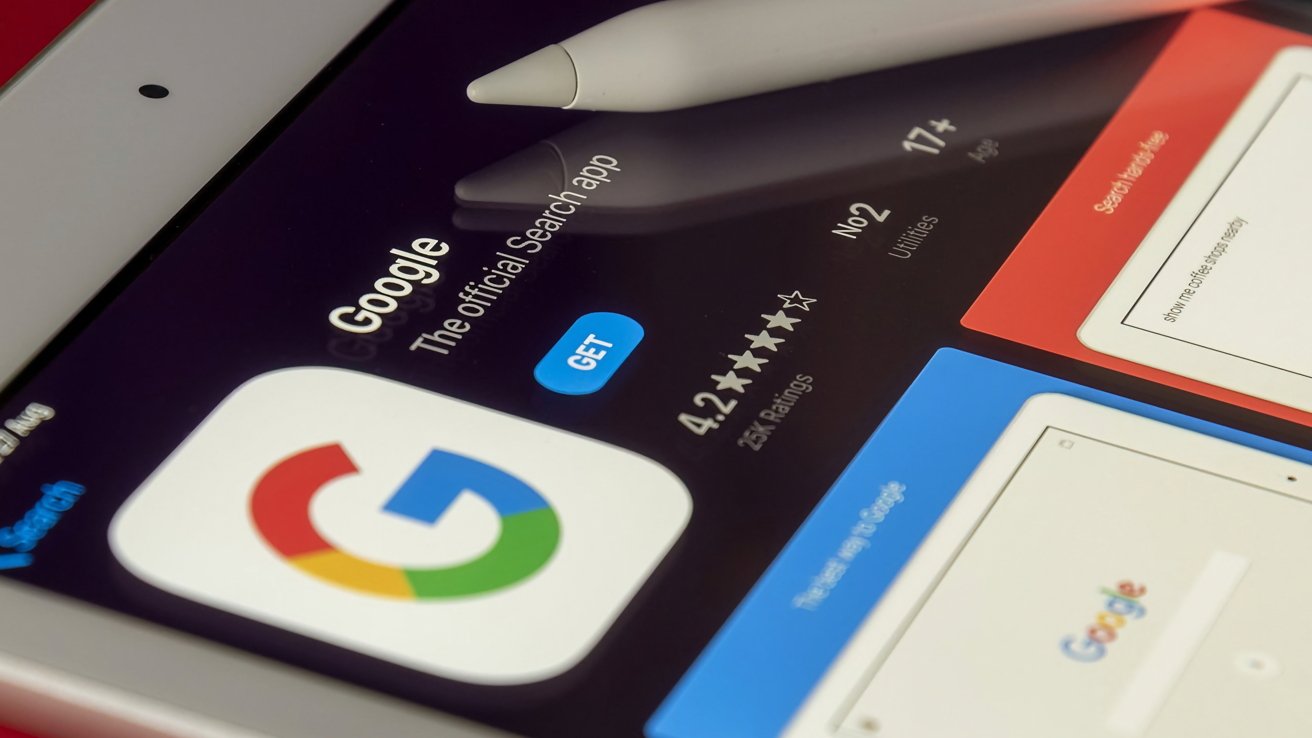Google did what it could to stifle Apple's search efforts, show court documents
Court filings show that Google feared losing revenue to an Apple-made rival and did what it could to stop it by establishing limits on what it could do as a part of the company's deal to stay on iOS.

Google pays to be the default
Apple has played a key role in the Department of Justice's (DOJ) antitrust case against Google. While not a defendant, Apple executives were called as witnesses -- despite the company's objections -- and much of the case centers on the deal between Google and Apple.
That deal concerned Apple agreeing to have Google be the default search engine in iOS, and therefore on all iPhones. It's an agreement that has allegedly meant Google paying Apple as much as $20 billion annually.
According to The Information, Google executives became concerned in 2014 that Apple was directing users online without going through Google. Specifically, Safari was suggesting sites to users, which they could then go to directly.
"We are trying to build a structure that prevents them from diverting queries and destroying value," wrote Google executive Daniel Alegre, in an internal email from June 2016 email.
Reportedly, a slide deck revealed by the DOJ in court showed a forecast revenue hit from this feature. Then in 2016, when it was time to renew the deal, Apple agreed to keep its own search "substantially similar" to how it was then, rather than keep expanding the feature.
An August 2018 internal email appears to substantiate this. Joan Braddi, a Google executive in charge of search partnerships, wrote that the updated deal allowed Apple to offer "Siri suggestions," but in a specific, limited way.
Apple could do this, wrote Braddi, "exclusively for quality and not because they want to drive traffic to Siri."
Apple hasn't refused to make 'Apple Search'
The Information posits that this agreement is why the so-called "Siri suggestions" feature of iOS has only been incrementally updated. And then despite Apple having acquired search technology startups, and then former Google search executive John Giannandrea in 2018.
Giannandrea was one of the Apple witnesses called to the trial, and his statements claimed that Siri suggestions have expanded.
"Our general approach is we think users of our devices are seeking answers," he said, "and so if we can provide the answer, we will do that rather than sending them off to a general search engine."
Giannandrea also stated that Apple has never agreed that it would not develop its own Google rival. However, also during the trial, Apple's Eddy Cue said that the company had not considered doing this, because Google's search is the best.
Apple has not commented. Judge Amit P. Mehta has also ruled that much or even most of the documentation presented at trial will not be made public because it contains business trade secrets.
Read on AppleInsider

Comments
Analyst keep saying Apple is behind or late to come up to speed in the AI race. As with everything they do, the technology (LLMs) weren't ready for prime time, yet.
I'm excited to see what they introduce and bet it works across MacOS, iOS, WatchOS and TvOS.
Google competes with Apple in the phone business, but Google pays Apple billions for services used by their phones.
Neither case is inherently evil. I don't mind investigations. But I would recommend that if investigations come up really empty, the investigators and people who called for and funded it should be publicly shamed for wasting government money.
Apple perhaps loses a high ground business ethics argument which is: they heavily promote privacy with the iPhone, but then take cash to leverage a company known to use as much of your personal data as they can.
The Sherman Act
Apple, Google and Samsung are big companies, and they are allowed to pay each other billions for goods and services. The word "billions" doesn't imply monopoly. Don't you agree?
Given current times, I think both companies might be feeling the ice cracking under their feet.
I think whether it breaks or not will depend on what gets squeezed out of the process.
I take the view that it's almost as if Apple is being paid to not step on Google's grass with both companies understanding full well the impact on competition.
The evidence of the arrangement actually points to the idea that Apple could have had a competitive search product. As a comparison, Apple used to pay Microsoft to keep support Office for Mac - because Apple didn't have something as good. If they had, Microsoft might have paid Apple to allow Office on the Mac.